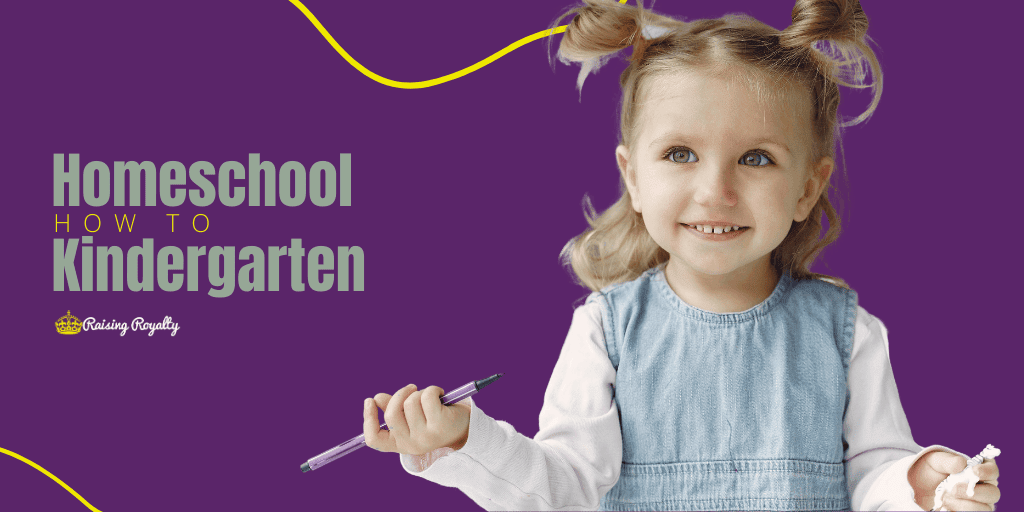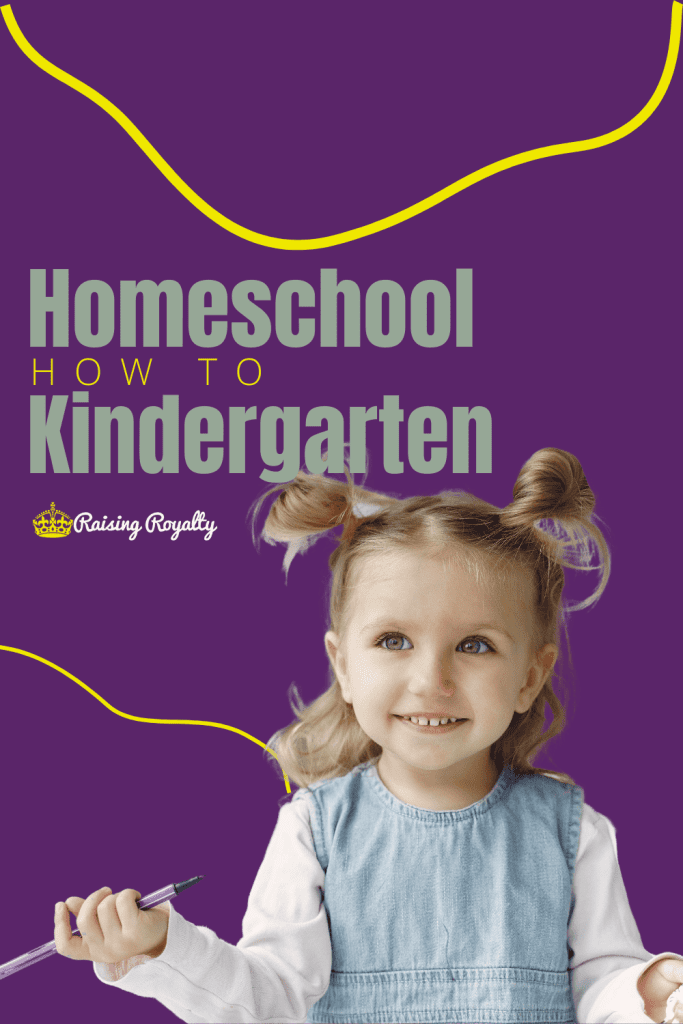
Kindergarten is a delightful time to homeschool, and a very easy age to homeschool. In most jurisdictions, the mandatory age for compulsory schooling isn’t until age 6 or later. So as far as reporting and grading, kindergarten is relatively paperwork-free. And it is a ton of fun!
So, after checking your local rules, and if your jurisdiction’s mandatory age for school is age 6 or later, don’t register your child for kindergarten. If you did register your child for kindergarten, call the school and make sure they know you aren’t sending them. Kindergarten is often completely optional!
Where do you start with homeschool kindergarten?
One of the best things you can do with your kindergarten-aged child is to keep doing what you’ve been doing with them as a toddler and preschooler. Don’t immediately try to change their routines into something resembling a school day. Let them play.
Use your community resources.
If you haven’t already, go and meet your local librarian. Ask them for their favorite list of books to read aloud to your child. Sign up for storytime, learn & play, or whatever else they have for 4-5 year olds. Go weekly. Not only will this encourage literacy, but will give both you and your little one social time.
Another option is to check out a young child’s music program near you. It can be virtual or in person. Music plays a huge role in both literacy and numeracy skills, so getting your child involved in musical activities early is extremely valuable. Consider private music lessons as well! Age 4 or 5 is a perfect age to start piano or voice lessons.
Your local community-centre or YMCA may also have great opportunities for your child. Many local programs offer “samples” at community centres, like short-term dance classes, martial arts, gymnastics or tumbling. A six-week jazz dance class is an affordable way to try out an interest without committing to it long-term.
And don’t forget your local pool or arena! Kindergarten-age sports teams, learn-to-skate programs and swimming lessons are amazing tools to help your child learn, grow and explore their interests. And since they aren’t going to be stressed by early mornings, all-day classrooms, and overstimulating environments, you can take advantage of many programs without risking your child’s health and well-being.
Get outside!
Homeschool kindergarten doesn’t have to happen at home! Plan a weekly morning at the park. Maybe 2-3 mornings, depending on your schedule and the level of your child’s interest. Outdoor play and exploration is huge for both social & motor skills, and a great way to introduce nature science. Encourage them to climb, get messy and get loud. Get a magnifying glass and a bucket for collecting.
Do nature walks with your child too. Watch for the changing seasons, talk about plants and animals, and how the weather affects them. Maybe grab a field guide and some binoculars, for yourself. Or use an app for identifying plants, birds, rocks or animal tracks.
What supplies do you need?
Stock up on craft supplies – paper, paint, glue, crayons, etc. Raid the recycling bin. Paper crafts are incredibly useful for developing fine motor skills, alongside language, literacy and numeracy skills. Use what you’ve collected on your park days for scrapbooking. Or paint the rocks and take them back to the park or trails and leave them for others to enjoy.
Coloring is also a useful exercise for homeschool kindergarten. Use crayons, markers, pencil crayons and colored pens to color big and little pictures. Coloring helps with proper finger position for writing, and with developing both hand control and strength.
If your child isn’t one to color, try painting, drawing, or chalk.
Teach them to be independent.
One of the most important things you can teach your kindergartener is to be independent. Focus on independence-building skills: dressing themselves, getting ready to go out, feeding themselves and cleaning up. Teach them how to do up zipper and buttons, how to put on their own shoes and coats, and how to find and put away their mittens, hats, and boots.
You’ll also want to work on the how-to-learn skills, such as their attention span, their ability to take turns (with toys AND with conversation), and comprehension.
Grow their attention spans with slightly longer stories or games. Push a little bit on the wiggles when they get antsy, and ask them to stay still a little longer while you’re working on a project with them. It’s a muscle like anything else, and requires exercise to get stronger.
Help them practice taking turns in playing and in conversation. Don’t let them interrupt, and give them cues on when to wait and when to talk. Encourage them to ask questions and listen to their talking as well, so they feel respected and engaged. (And to check how well they’re understanding the things you’re teaching them). Not every child will get it right away, but with practice and support, they will be able to hold engaging conversations and make friends better. Even your shy child will feel more confident!
One of the more important skills homeschool kindergarten (and public school kindergarten) children should learn is basic etiquette. And this is modeled more than taught, so as parents and homeschool teachers, we need to remember to mind our manners too! Teach them how and when to say please and thank you, excuse me and I’m sorry.
Kindergarten is usually a two-year experience, but you can condense it into one, if that’s all your child needs, or expand it into three, if your child needs more time to develop and mature. Don’t feel like you need to rush into reading or push specific math or science skills. All children develop at their own pace, so take your time, and let your child show you when they’re ready for more.
Your child is ready to move up when they can:
》Recognize letter shapes and sounds,
》Understand and retell simple stories
》Understand then, now, later, before/after, yesterday/today/tomorrow
》Tell the difference between sizes, directions, colors, shapes, locations
》Be able to politely introduce themselves, and know who mom/dad is (names, not just mom/dad)
》Be able to fully dress themselves to shoes, includes zippers & buttons, without help. Doesn’t include tying shoes though — that can come later
》Be able to get themselves a snack, if placed within reach, and clean up after
》Use “please”, “thank you” and “excuse me” without prompting
》Be able to be around adult conversations without interrupting
》Be able to play quietly independently for at least 20 minutes
》Create and describe simple patterns
》Color pictures with appropriate colors, even if not necessarily neatly
》Use small safety scissors correctly without help
》Draw responses to stories
There are a few more skills and concepts to consider, but this should get you started.
No curriculum necessary.

